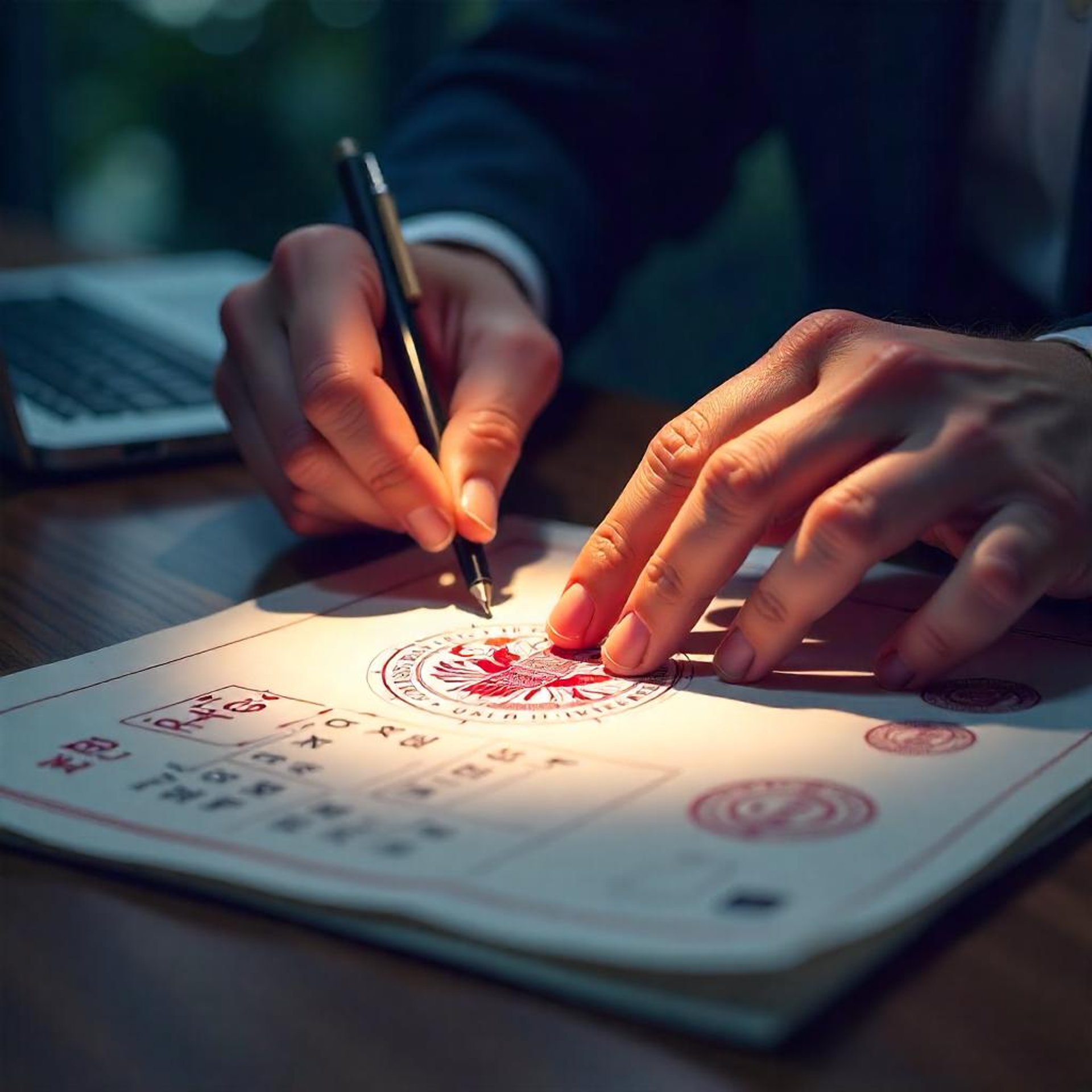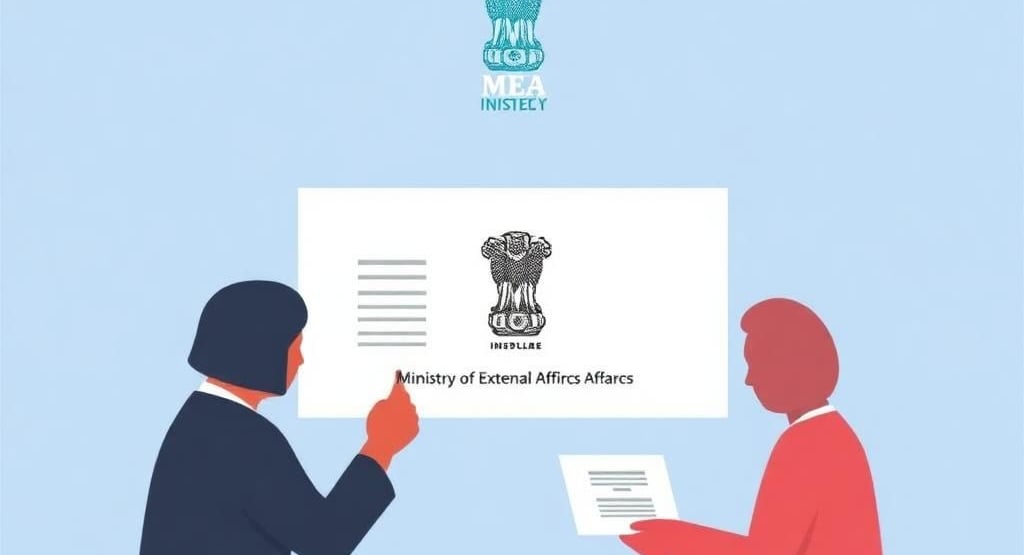
How to MEA Document in India – Beginner’s Guide


Understanding MEA Attestation
The Ministry of External Affairs (MEA) attestation is a crucial process for verifying the authenticity of documents intended for overseas use, ensuring that they are recognized by foreign authorities. MEA attestation serves as a stamp of approval that confirms the legitimacy of various documents, thus enabling citizens to engage seamlessly with international institutions and entities. This procedure has gained prominence in a globalized world where the authentication of documents plays a vital role in international transactions, educational endeavors, and migration processes.
Documents that commonly require MEA attestation include educational certificates, marriage certificates, birth certificates, and commercial agreements. Educational certificates, for instance, are often required to be attested when individuals seek further studies or employment opportunities abroad. Similarly, marriage certificates are essential for legal recognition in foreign nations, especially for purposes related to immigration and spousal visa applications. Commercial documents, such as invoices and contracts, also necessitate attestation to validate the legitimacy of business transactions across borders.
The significance of MEA attestation extends beyond mere validation; it fosters trust between domestic and foreign entities. When a document is attested by the MEA, it serves to assure the receiving party that the information contained therein is credible and backed by the Indian government. This trust is particularly important in legal matters, where authenticity and verification can significantly impact decisions made by foreign governments or organizations regarding visa applications, business contracts, and other international agreements.
In summary, MEA attestation is a vital step for individuals and organizations engaging in activities that require the acceptance of their documents overseas. Understanding its importance and the types of documents that require this level of authentication is essential for navigating international processes effectively.
The Process of MEA Attestation
The process of MEA attestation in India is essential for individuals seeking to validate various official documents for international use. The procedure involves several key steps that must be executed meticulously to ensure successful attestation by the Ministry of External Affairs (MEA).
To initiate MEA attestation, individuals must first gather the required documents. These typically include the original document that needs attestation, a photocopy of the document, a valid identification proof such as Aadhaar card or passport, and sometimes additional documents, depending on the specific requirement for which the attestation is sought. It is also advisable to ascertain whether the document requires prior attestation from the appropriate state authority, such as the Home Department, which is often necessary before MEA involvement.
Once all necessary documents are prepared, the next step is the submission of these documents along with the required fees. The fees for MEA attestation can vary based on the type of document and the urgency of the service. It is crucial to refer to the official MEA website or contact a recognized agency for precise fee structures. Payment will typically be accepted in person at the attestation center or through electronic means if available.
After successful submission, the attestation process can take anywhere from a few hours to several days, depending on factors such as the workload of the attestation center and the nature of the documents. To streamline the process and mitigate potential challenges, applicants should keep track of the application status and ensure compliance with all submission requirements.
Overall, understanding the sequence of actions involved in MEA attestation significantly eases the process, ensuring that documents are appropriately validated for international use.
Common Documents Requiring MEA Attestation
In the process of obtaining MEA attestation, several types of documents are frequently involved. Each of these document categories serves a particular purpose and is essential for various legal, personal, or educational credentials in foreign nations. Understanding these common documents can help individuals prepare effectively for the attestation process.
Firstly, educational documents, including degree certificates and academic transcripts, require MEA attestation as they validate the authenticity of one's educational qualifications. This attestation is crucial for purposes such as work permits, enrollment in foreign educational institutions, and applying for higher studies abroad. It assures foreign entities that the credentials presented are legitimate and recognized by the issuing authority.
Additionally, personal documents like birth and marriage certificates also necessitate MEA attestation. These documents play a vital role in processes associated with immigration, visa applications, and family reunification. They serve to confirm an individual's identity and familial relationships, which is paramount when navigating legal systems in other countries.
Furthermore, commercial documents such as power of attorney and various contracts often need attestation by the MEA as well. These documents are typically involved in business transactions, foreign investments, and legal agreements that require recognition from foreign jurisdictions. MEA attestation ensures that these documents hold legal weight and can be enforced in a foreign country.
In summary, the need for attestation by the MEA primarily focuses on validating the authenticity of documents, thereby facilitating smoother processes for education, personal matters, and international business transactions. Understanding the specific documents that require MEA attestation is crucial for anyone navigating these important formalities in India.
Tips and Best Practices for Beginners
Navigating the MEA attestation process can be daunting for beginners. However, there are several tips and best practices that can greatly ease this journey. Firstly, it is crucial to understand the specific requirements for the documents you intend to attest. Different types of documents, such as educational certificates, marriage certificates, or commercial documents, may have varying requirements for MEA attestation. Familiarizing yourself with these specifics will help you prepare well and avoid unnecessary setbacks.
Another important practice is to ensure that you keep multiple copies of all your documents. Original documents are often required for the attestation process, and losing them can lead to significant delays and complications. Therefore, maintaining a scanned and printed copy of your vital documents can serve as a backup. This precaution will provide peace of mind and ensure that you have easy access to your documents when needed.
When it comes to selecting an attestation service, it is essential to choose a reliable and reputable provider. Look for services with positive reviews and a proven track record in the industry. Check whether they are authorized by the MEA to carry out the attestation process. In addition, clarify their fee structures and processing time to avoid any hidden costs or unexpected delays. Gathering recommendations from friends or colleagues who have previously gone through the process can also guide you in selecting a trustworthy provider.
For additional resources, refer to the official MEA website, which provides a wealth of information regarding the attestation process. They also offer helplines for specific inquiries, which can be incredibly beneficial in addressing any doubts you may have. Empowering yourself with knowledge and utilizing trustworthy resources will facilitate a smoother and more efficient MEA attestation experience.
Expert
Your trusted partner for document attestation services.
Contact NOw:
Support
+91 9210776391
© 2025. All rights reserved.
